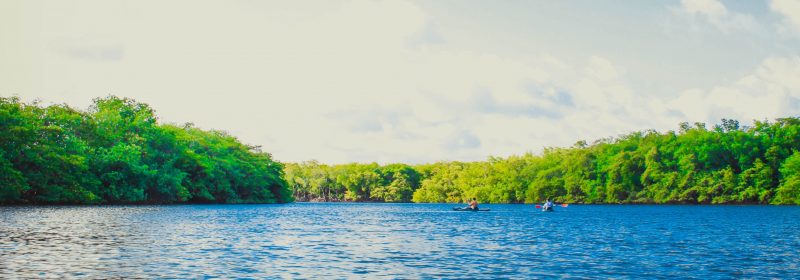 In this last post of the series, Ecological Modernization and its connections to EbA and SD will be discussed. In Part 1 of this series, Ecosystem-based Adaptation (EbA) proved to be an integral component of modern environmental management and policy making. Part 2, Sustainable Development, illustrated how that concept fits into the EbA framework.
In this last post of the series, Ecological Modernization and its connections to EbA and SD will be discussed. In Part 1 of this series, Ecosystem-based Adaptation (EbA) proved to be an integral component of modern environmental management and policy making. Part 2, Sustainable Development, illustrated how that concept fits into the EbA framework.
What is Ecological Modernization?
Simply put, ecological modernization is a theory that the economy will benefit from moves toward environmentalism. Concepts within this theory have been around for a few decades and still widely debated. A more detailed explanation of ecological modernization can be found here. This theory assumes that environmental problems are challenges for social, technical and economic reform rather than as uncontrollable consequences of industrialization.1 Like sustainable development, ecological modernization looks to overcome environmental crises without leaving the path of modernization.
Some argue that having social and environmental goals as a function of economic goals as being in conflict with the concepts intrinsic to sustainable development2. In addition, ecological modernization calls for cultural transformations and major institutional changes to align environmental protections and improvements into policy and actions. This, like many other interconnected components of good governance, can be a complicated and long process. Broad changes to long-standing institutions, both governmental and societal, must be handled with care.
Ecosystem Service Valuation
Each concept discussed in this series incorporates the economy into the environment. Though, applying a monetary value to nature may not be necessary for everyone to appreciate the benefits. After all, how can one place a value on the air we breathe or simply feeling good when walking in the woods? For many, however, this is an approach that makes sense. For instance, if maintaining a mangrove stand on a shoreline provides protection to homes and infrastructure from hurricanes and the cost to replace the trees with a wall would be unfeasible, there will likely be a high value placed on the trees and thereby ensure they remain in place.
The Conservation Strategy Fund produced a series of videos on the valuation of ecosystem services that are helpful to explain the different ways one can attribute value to a service that the environment provides.
In Part 1 of this series, I note that societal values and dominant culture views must also be taken into consideration when applying a value to an ecosystem service. If political elites are making isolated decisions about value placement, each concept discussed in this series falls apart. The incorporation of input from citizens and society into policy decisions is important. Changing a policy that will affect development? Run it by some developers. Increasing a fee to deal with storm water? Open it up for public comment. This may add some process, time and headaches but will result in more equitable and acceptable changes.
Retaining the Social Component
The concepts behind ecosystem-based adaptation, sustainable development and ecological modernization are complicated by their very nature. Interweaving politics, policy, environment and the economy isn’t enough, however. Like the economy, each concept in this series is directly connected to a social component. Each concept, when put into practice, also directly affects the public. There will not only be modifications to policy and practice, there must also be changes in social frameworks. Being in touch with the public often and building relationships throughout the year will go a long way when seeking public comment on potential policy changes.
For ecological modernization to move from theory into practice, a collective understanding that incorporates ecological concerns into everyday attitudes must occur. Just like the process of inclusion when placing values on ecosystem services, an open government who is in touch with their community can craft and implement better policy.
Here are some additional resources:
The sociology of adoption of conservation practices provides some insight and can help facilitate conservation policies.
1. Mol, Arthur P.J. and David A. Sonnenfeld. Ecological Modernization Around the World: An Introduction. Environmental Politics 9(1):3-13, Spring 2000.
2. Gibbs, David. Ecological Modernisation: A Basis for Regional Development? Seventh International Conference of the Greening of Industry Network ‘Partnership and Leadership: Building Alliances for a Sustainable Future’, Rome 15-18 November 1998.
Amy Kay is a GovLoop Featured Contributor. She has worked in municipal stormwater management for 10 years and has served as the Clean Water Manager with the City of Davenport since 2016. Here, she directs the resource conservation and watershed management programs along with activities of the Clean Water Program in compliance with NPDES and MS4 permits. You can read her posts here.





Leave a Reply
You must be logged in to post a comment.